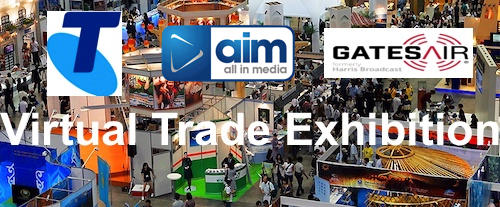Comment from Peter Saxon.
Amazing what a little competitive “buying tension” can bring to a negotiation.
Just the other week, before Facebook blew up in our collective faces, Google was threatening to leave Australia altogether until rival Microsoft threw their hat into the ring and said that they would fill any gap left by Google and that they’d abide by Australia’s proposed new codes and laws when enacted by parliament.
The government called Google’s bluff and the tech giant quietly resumed negotiations and was able to quickly finalise deals with major local news outlets.
Mind you, it always seemed unlikely that Google would take its bat and ball and go home leaving a reported $4.8 billion in revenue on the table.
It’s ironic, though, that it is Microsoft that put up its hand to give the Google behemoth pause. Not unlike Google today, back in the 1990s, Microsoft was the dominant tech company and was considered far too big for its boots by the U.S. Federal Trade Commission, America’s equivalent of Australia’s ACCC. Every capitalist country has a similar regulator to maintain a level playing field for business and guard against monopolies that stifle competition and thereby innovation.
Microsoft was found to be in breach of U.S. antitrust laws for bundling its search engine, Internet Explorer, into its Windows operating system that almost all PCs use (with the notable exception of Apple) and thus shutting out its competitors, such as Netscape, which was the leading search engine at the time. So, the FTC cut Microsoft down to size by ordering it to be broken up, forcing its individual software components, such as Microsoft Office and Internet Explorer to be sold separately to its operating system and to allow third party apps to access Windows.
It was all too late for Netscape, which hasn’t survived, but the Google search engine and its Chrome browser was able to take full advantage of the changed marketplace to the extent that not only is Chrome the world’s most popular browser, Google, is the favoured search engine that now powers other browsers such as Apple’s Safari and Mozilla’s Firefox as well. In fact, Google can boast around 90 per cent penetration in most markets around the world, including Australia.
So, we’ve now come full circle. This time its Microsoft trying to eat into Google’s share of the search engine market with its own product, Bing. I doubt the irony’s been lost on either company or the FTC and ACCC, or those advising our government. With the whole world watching, I suggest Microsoft, may have sensed that this wasn’t the time to throw its weight around and risk closer scrutiny by the corporate watchdogs.
Yet, almost immediately after Google had returned to the negotiating table, Facebook pulled the pin on its Australian news pages, alienating not only the news entities it had targeted but a large chunk of the Australian community, much of it, FB’s own community of users.
If FB thought that Australians, having invested so much time on FB, would back them against local media and their own government, it was a huge miscalculation, best summed up by that classic Australian put-down, “You’re good, mate. But not that good.”
To be fair, Facebook did have a case, in that it was being unfairly lumped in with Google in the way in which it handled other people’s original news content. While Google’s bot roams the internet looking for news stories to choose from and pudh to its users, FB argues that, on its platform, news outlets can create their own FB page, if they so wished, and they chose which of its news items they wished to display, not FB.
In my opinion, that significant difference could have been better articulated. However, it seems that no one was in the mood to listen anyway. All Australia could see was a big international organisation headed by an autocratic CEO, determined to teach us an object lesson by pulling the rug from under us to get its way.
To make matters much, much worse for itself, FB in its haste and determination to prove a point, inadvertently shut down the pages of a slew of community service and charity organisations that had come to depend on FB to help disseminate vital information.
Faced with a PR disaster, and public opinion turned heavily against it, FB quickly retraced its steps, came back to the bargaining table and promised to, within a few days, restore all the pages it had shut down. At time of posting, radioinfo’s page is still inopperable.
If Australia’s battle with tech and social giants is being viewed as a test case around the world by other countries and their regulators, then the results of their actions of the past few weeks have done Google and Facebook no favours.
When Twitter shut down President Donald Trump’s account following the January 6 riots, many people applauded the move by the social giant for finally choking Trump’s ability to incite and spread his lies about a stolen election. On the other hand, almost as many booed Twitter for attacking the first amendment as it pertains to freedom of speech.
What both sides could agree on was that a commercial organisation like Twitter should not be making such ethical decisions on their own. It gives them way too much power.
We’ll continue this discussion next week on whether governments should or even could rein in the Social Giants.

Peter Saxon
Subscribe to the radioinfo podcast on these platforms: Acast, Apple iTunes Podcasts, Podtail, Spotify, Google Podcasts, TuneIn, or wherever you get your podcasts.




